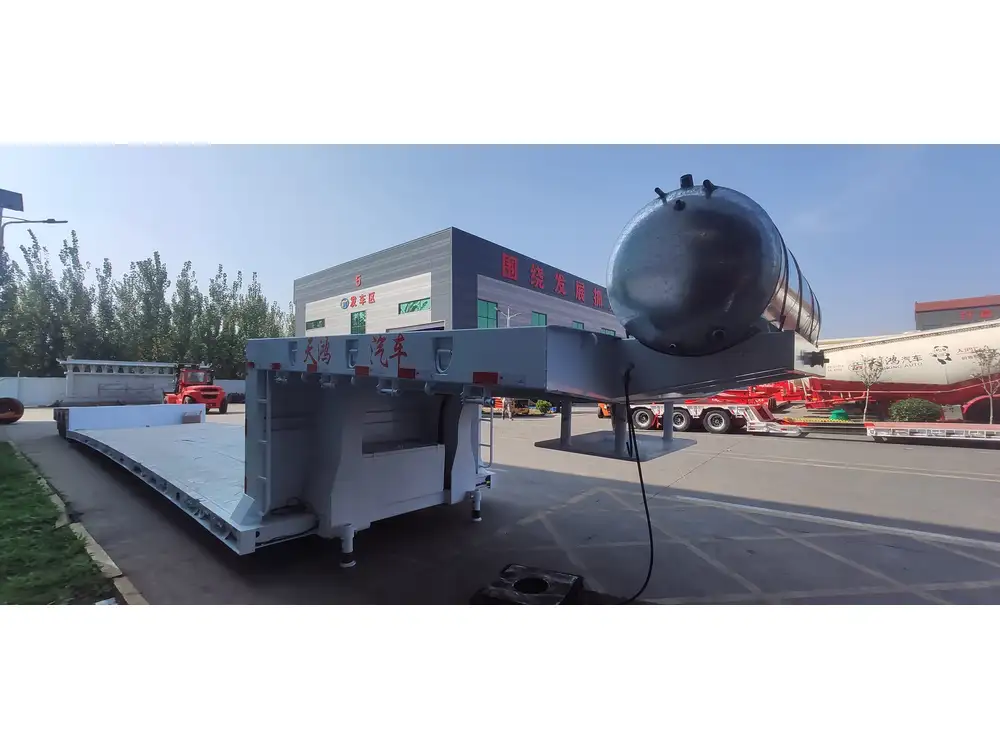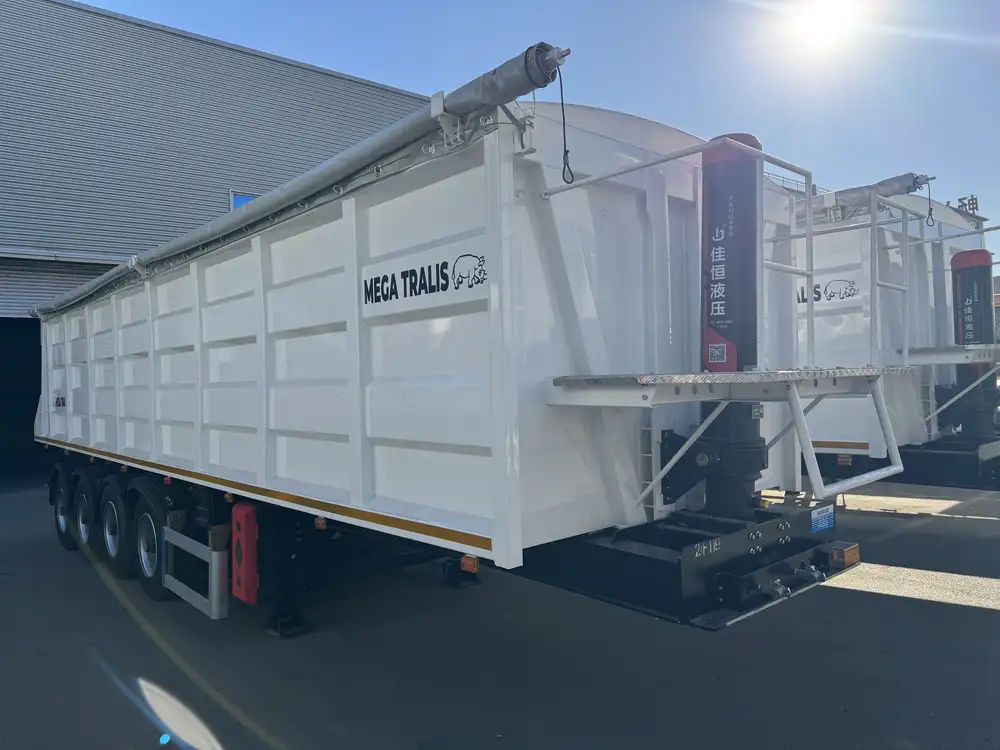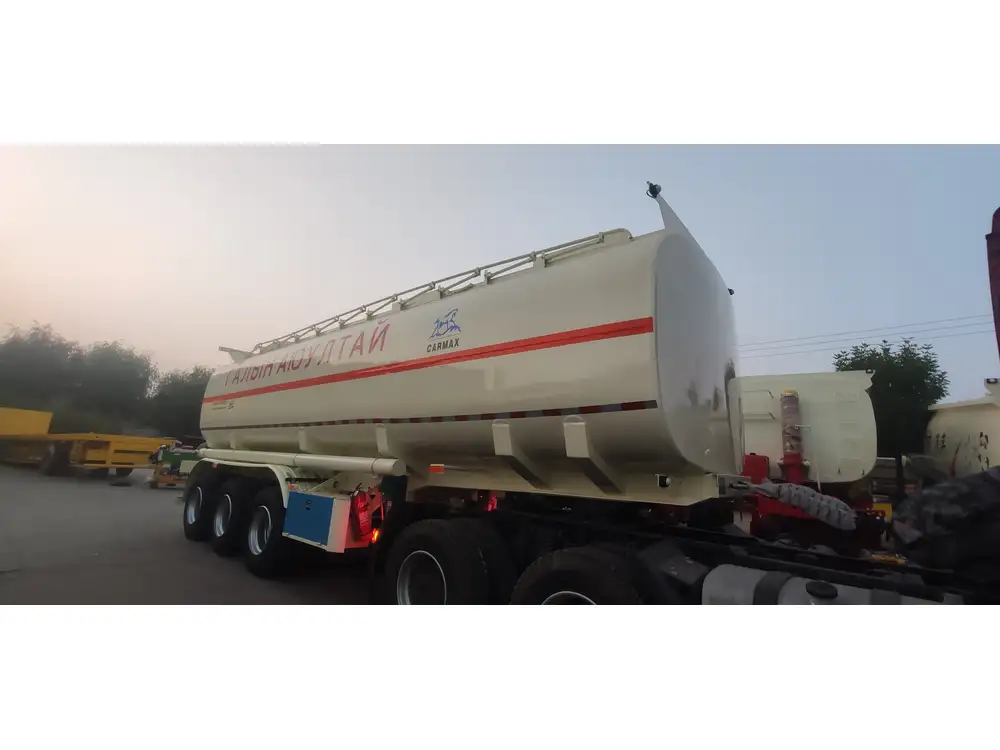Locating the title of a semi-trailer can often feel like a convoluted task fraught with challenges. A title is not just a piece of paper; it’s a critical document that establishes ownership and legal rights to the trailer. In this guide, we will explore the various methods, steps, and resources available to help you successfully locate the title of a semi-trailer, whether you are a manufacturer, dealer, or private owner.
Understanding the Importance of a Title
Before diving into the methods of obtaining or locating a semi-trailer title, it’s essential to grasp its significance:
| Purpose of a Title | Explanation |
|---|---|
| Proof of Ownership | Confirms that you are the legitimate owner. |
| Legal Transactions | Necessary for buying, selling, or transferring rights. |
| Registration and Insurance | Required for registration with local authorities and insurers. |
| Lien Verification | Ensures no outstanding loans or liens against the semi-trailer. |
Potential Issues in Title Acquisition
Title acquisition can be complicated due to a variety of factors, such as:
- Lost Titles: Titles can be misplaced during a move or, in some cases, never received from a dealer.
- Inheritance Situations: Titles may not have clear designation during inheritance.
- Multiple Owners: Challenges arise when multiple parties have a vested interest in the trailer.
- Out-of-State Titles: Different states maintain different regulations for vehicle registration and title.
These hurdles necessitate well-informed steps to navigate the complex title landscape effectively.

Steps to Locate the Title of a Semi-Trailer
1. Check Existing Documentation
Gather Any Received Paperwork
Before proceeding with deeper research, review any existing documentation related to your semi-trailer, such as:
- Purchase agreements
- Bill of sale
- Owner manuals
- Previous registration papers
Tip: Keep organized records. Utilize folders or digital storage solutions to track all your vehicle documents.

2. Contact the Previous Owner
Reach out to the previous owner or dealer (if applicable), as they might possess a copy of the title or provide vital information on its whereabouts. Keep the following in mind:
- Make sure to get identification information.
- Record any relevant conversations.
- Request any documentation that may aid your search.
3. Visit Your Local Department of Motor Vehicles (DMV)
The DMV is a crucial resource for locating vehicle titles. Here’s what to prepare for your visit:
What to Bring:
- Identification (a valid driver’s license or ID card)
- Vehicle Identification Number (VIN)
- Any previous documents on the semi-trailer

What to Ask:
- Request a title search using your semi-trailer’s VIN.
- Ask about the process for obtaining a duplicate title if it’s lost.
Note: Policies vary significantly; some states may allow online applications, while others require in-person visits.
4. Utilize Online Title Search Services
Several online platforms can assist with locating vehicle titles. Reliable options include:
National Motor Vehicle Title Information System (NMVTIS)
- A federal database assisting in verifying vehicle history and ownership.
Private Title Search Companies
- Many companies specialize in locating lost titles through databases and state agencies.
How to Use These Resources:
- Fill in your semi-trailer’s VIN.
- Provide any ownership details you may have.
- Consider subscription services for comprehensive access.

5. File for a Bonded Title
If you can’t locate the title after exhaustive efforts, consider applying for a bonded title. This involves:
- Getting a surety bond that can provide guardianship of ownership.
- Presenting proof of your attempts to locate the original title.
Here’s a summary process:
| Steps to File for a Bonded Title | Details |
|---|---|
| Visit DMV | Speak with a representative about applying for a bonded title. |
| Provide Proof of Ownership | Show any available documents (e.g., bill of sale, registration). |
| Obtain a Surety Bond | Contact an insurance company that provides bonded title services. |
| File Application | Complete necessary forms and pay any applicable fees. |
6. Check for Liens and Claims
When attempting to secure a title, it is crucial to ensure there are no liens against the semi-trailer. This can be done through:
- DMV Title Search: Verifying that no financial claims exist against the trailer.
- Online Searches: Many states offer online databases where you can check for liens.
7. Consult a Legal Professional
If all else fails and you face challenges due to legal complications, consulting with an attorney specializing in vehicle law may be beneficial. Legal professionals can provide tailored advice and resources for:
- Sorting through complex ownership issues.
- Navigating liens or claims from previous owners.
- Seeking recourse through the court if necessary.

Common Questions About Semi-Trailer Titles
What if the Semi-Trailer Was Abandoned?
If you believe you own an abandoned semi-trailer, the first step is confirming local laws surrounding abandoned vehicles. Typically, you will need:
- Proof of your claim to possession.
- Contact local authorities to report the found vehicle.
Are There Any Fees Involved in Locating a Title?
Yes, various fees can apply, including:
- DMV fees for title searches.
- Charges for obtaining replacement titles.
- Service fees for using private title search companies.

What Is the Timeframe for Obtaining a Duplicate Title?
The timeframe varies based on state regulations, methods of application (online vs. in-person), and the backlog at the DMV. Typically, it can take anywhere from a few days to several weeks.
Conclusion
Locating the title of a semi-trailer can seem challenging at first, but by utilizing the outlined procedures and resources, you can effectively navigate through the complexities involved. Begin by organizing your documentation, consulting with previous owners, and reaching out to the DMV. If necessary, don’t hesitate to explore online resources or seek legal advice to ensure you obtain your semi-trailer title successfully.
By maintaining thorough records and understanding the processes involved, you can establish and secure your ownership rights and navigate future transactions with confidence.



